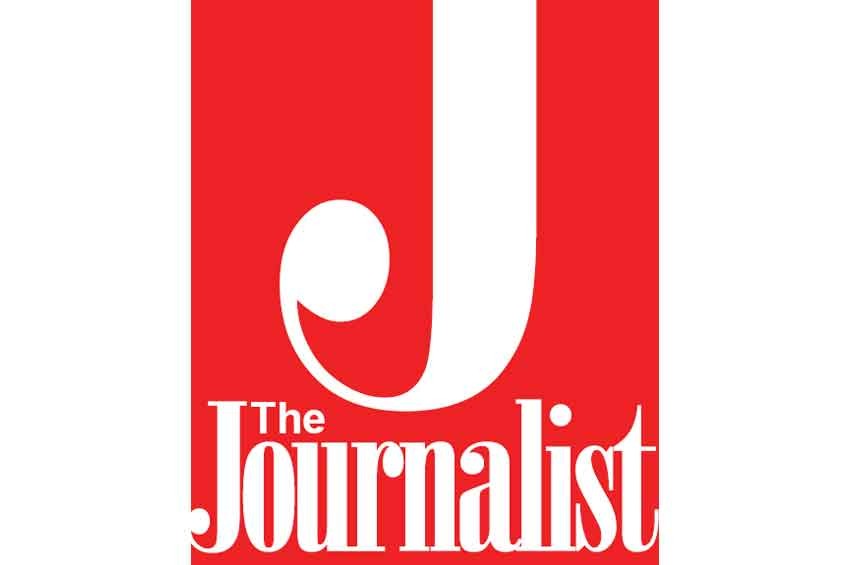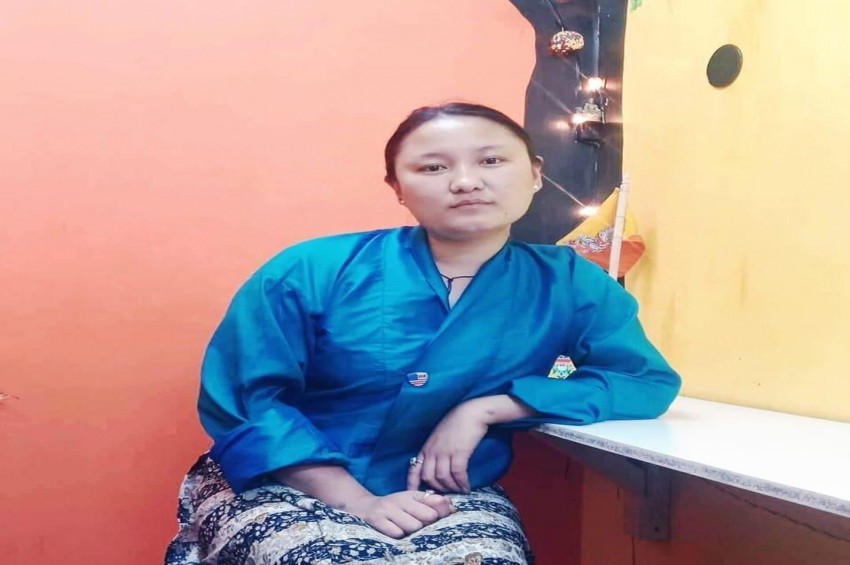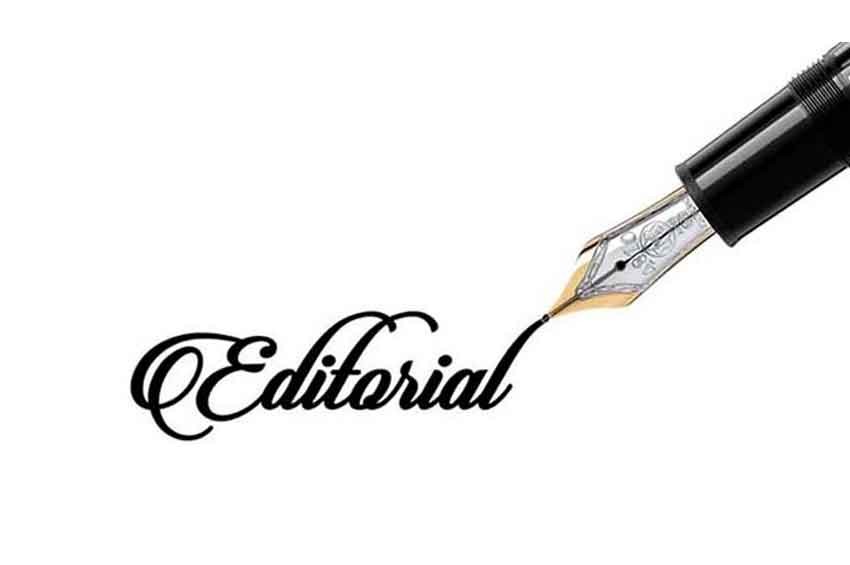All ingredients were bought and the group was waiting for the spicy Trashiyangtse chilly. This came in the form of a statement from the Secretary, Ministry of Agriculture and Forests (MoAF), issuing a notification for “strict compliance.” The meal was ready and no one lost any time in savoring the special dish, analyzing, questioning and interpreting the notification.
Both print and social media heroes have interpreted it and some have even said it is suppressing the media. Everyone has their rights to interpret, like I do, too, and I see nothing wrong with the notification. In more that one way, it is a reminder to civil servants about Section 3.2.7.2 of the BCSR 2018, which states: “A civil servant SHALL NOT: i. Criticize publicly the policies, programmes, and actions of the Royal Government and his own Agency; ii. Engage in corrupt activities iii. Obstruct the success of his Agency; iv. Steal or vandalize office properties; and v. Embezzle.”
It appears that the ball was rolled during the Webinar Session conducted by RCSC for all HR Officers on March 31, 2022, where the RCSC might have reminded participants about the BCSR and the need to uphold the civil service values and code of conduct. This is important, especially now when the civil service reforms, which was moving like the Bramaputra Express has begun accelerating like the Shinkansen. Where would anyone reach without values and code of conduct?
Five days later, signed by the Secretary, MoAF a notification was issued saying that as per Section 3.2.7.2 of BCSR 2018, Chapter 3 on Civil Service Values and Conduct a civil servant shall not “ i. Criticize or undermine policies, programs and actions of the Royal Government in public and/or media (broadcast, print, and online); and i Communicate/transmit/post hate messages or any content with the intent to defame a person or Government Agencies.”
Perhaps, the hearts of those crying foul - keepers of the Fourth Estate - are affected because of what came later. “Further, all civil servants shall seek prior approval from the Ministry or respective Head of Department before sharing any views and information to the media.”
I see no suppression here. The notification does not say: “Further, all civil servants shall not interact with the media…”. It also does not say that views and information cannot be shared. What masters of the pen, the spinners, supposed voices of the dumb, eyes of the blind, Lucy and Captain Marvels ought to know is that there are civil servants who are young and fresh in the profession. They may land up giving wrong or half-baked information leading to a Greek War. Seeking prior approval does not mean censorship. There are benefits instead. Civil servants will know how to talk with the media; their heads may give them important and additional information to share with the media etc.
Something our voices, the bridge between people and government has turned a blind eye to, is this sentence from the notice. “The respective Departments/Non-Departments agencies shall also identify media focal person from their respective offices.”
Many have even cited the constitutional right: “A Bhutanese citizen shall have the right to freedom of speech, opinion and expression,” and said the notification is a blatant denial of these rights. More than anyone, the Bhutanese media knows civil servants have been exercising this right. Due to this, stories are filled with sentences such as, “a civil servant who sought anonymity……..,” a civil servant who did not want to be named… etc. In essence, they have been criticizing or undermining policies, programs and actions of the Royal Government in public. This will not stop, even if scores of notifications are issued.
According to one officer, who attended the webinar, the RCSC indicated the importance of right and correct information, and said concerned authorities should ensure that information provided are not half-baked and incorrect. Today, with social media, “Fake News” alerts come in regularly. Additionally, information is not complete. With media focal persons in place, such things will not happen. The Media also need not wonder who to call, if information is required.
Prime Minister (PM) Dr. Lotay Tshering has repeatedly reminded the people about His Majesty’s command that information should be disseminated to the people. It is important for the people to know what is happening or what would happen. Today, the media has the freedom to call the PM, cabinet ministers, secretaries etc even at midnight. Whether they respond or not is definitely another issue.
It is also true that getting information is not easy. Some civil servants are reluctant to talk and others are sometimes rude. They pass the buck. I would look at this positively as the buck stops somewhere – it reaches the Secretary or a Minister, where one can say, “I have been asked to call Your Excellency.” If they say that they don’t know, it’s a headline – “Secretary doesn’t know about….” or “Minister refuses to comment…”.
Interpretation is no one’s monopoly. We see leaders interpreting the Constitution in their own ways despite the Constitution itself saying that the Supreme Court is the interpreter of the Constitution. Yes! The civil service and other organizations ought to share information and respond to the media. There should not be any kind of differentiation between media houses, which is happening now. The media should not be undermined, too. Organizations should have media focal persons. If the media focal person has to seek permission and approval from superiors, that is definitely including an issue. However, in the current case, I neither see suppression, nor attempts to do so. But, this is my interpretation and a liberal one.
Both print and social media heroes have interpreted it and some have even said it is suppressing the media. Everyone has their rights to interpret, like I do, too, and I see nothing wrong with the notification. In more that one way, it is a reminder to civil servants about Section 3.2.7.2 of the BCSR 2018, which states: “A civil servant SHALL NOT: i. Criticize publicly the policies, programmes, and actions of the Royal Government and his own Agency; ii. Engage in corrupt activities iii. Obstruct the success of his Agency; iv. Steal or vandalize office properties; and v. Embezzle.”
It appears that the ball was rolled during the Webinar Session conducted by RCSC for all HR Officers on March 31, 2022, where the RCSC might have reminded participants about the BCSR and the need to uphold the civil service values and code of conduct. This is important, especially now when the civil service reforms, which was moving like the Bramaputra Express has begun accelerating like the Shinkansen. Where would anyone reach without values and code of conduct?
Five days later, signed by the Secretary, MoAF a notification was issued saying that as per Section 3.2.7.2 of BCSR 2018, Chapter 3 on Civil Service Values and Conduct a civil servant shall not “ i. Criticize or undermine policies, programs and actions of the Royal Government in public and/or media (broadcast, print, and online); and i Communicate/transmit/post hate messages or any content with the intent to defame a person or Government Agencies.”
Perhaps, the hearts of those crying foul - keepers of the Fourth Estate - are affected because of what came later. “Further, all civil servants shall seek prior approval from the Ministry or respective Head of Department before sharing any views and information to the media.”
I see no suppression here. The notification does not say: “Further, all civil servants shall not interact with the media…”. It also does not say that views and information cannot be shared. What masters of the pen, the spinners, supposed voices of the dumb, eyes of the blind, Lucy and Captain Marvels ought to know is that there are civil servants who are young and fresh in the profession. They may land up giving wrong or half-baked information leading to a Greek War. Seeking prior approval does not mean censorship. There are benefits instead. Civil servants will know how to talk with the media; their heads may give them important and additional information to share with the media etc.
Something our voices, the bridge between people and government has turned a blind eye to, is this sentence from the notice. “The respective Departments/Non-Departments agencies shall also identify media focal person from their respective offices.”
Many have even cited the constitutional right: “A Bhutanese citizen shall have the right to freedom of speech, opinion and expression,” and said the notification is a blatant denial of these rights. More than anyone, the Bhutanese media knows civil servants have been exercising this right. Due to this, stories are filled with sentences such as, “a civil servant who sought anonymity……..,” a civil servant who did not want to be named… etc. In essence, they have been criticizing or undermining policies, programs and actions of the Royal Government in public. This will not stop, even if scores of notifications are issued.
According to one officer, who attended the webinar, the RCSC indicated the importance of right and correct information, and said concerned authorities should ensure that information provided are not half-baked and incorrect. Today, with social media, “Fake News” alerts come in regularly. Additionally, information is not complete. With media focal persons in place, such things will not happen. The Media also need not wonder who to call, if information is required.
Prime Minister (PM) Dr. Lotay Tshering has repeatedly reminded the people about His Majesty’s command that information should be disseminated to the people. It is important for the people to know what is happening or what would happen. Today, the media has the freedom to call the PM, cabinet ministers, secretaries etc even at midnight. Whether they respond or not is definitely another issue.
It is also true that getting information is not easy. Some civil servants are reluctant to talk and others are sometimes rude. They pass the buck. I would look at this positively as the buck stops somewhere – it reaches the Secretary or a Minister, where one can say, “I have been asked to call Your Excellency.” If they say that they don’t know, it’s a headline – “Secretary doesn’t know about….” or “Minister refuses to comment…”.
Interpretation is no one’s monopoly. We see leaders interpreting the Constitution in their own ways despite the Constitution itself saying that the Supreme Court is the interpreter of the Constitution. Yes! The civil service and other organizations ought to share information and respond to the media. There should not be any kind of differentiation between media houses, which is happening now. The media should not be undermined, too. Organizations should have media focal persons. If the media focal person has to seek permission and approval from superiors, that is definitely including an issue. However, in the current case, I neither see suppression, nor attempts to do so. But, this is my interpretation and a liberal one.















